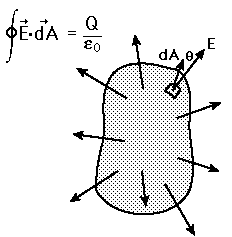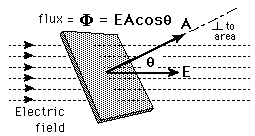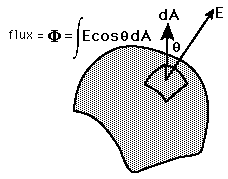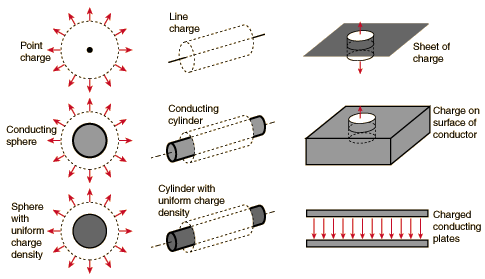Gauss's Law

The electric flux through an area is defined as the electric field multiplied by the area of the surface projected in a plane perpendicular to the field. Gauss's Law is a general law applying to any closed surface. It is an important tool since it permits the assessment of the amount of enclosed charge by mapping the field on a surface outside the charge distribution. For geometries of sufficient symmetry, it simplifies the calculation of the electric field.
| Applications | More formal statement | Gauss' law for magnetism |
Electric field concepts
| HyperPhysics***** Electricity and Magnetism | R Nave |



